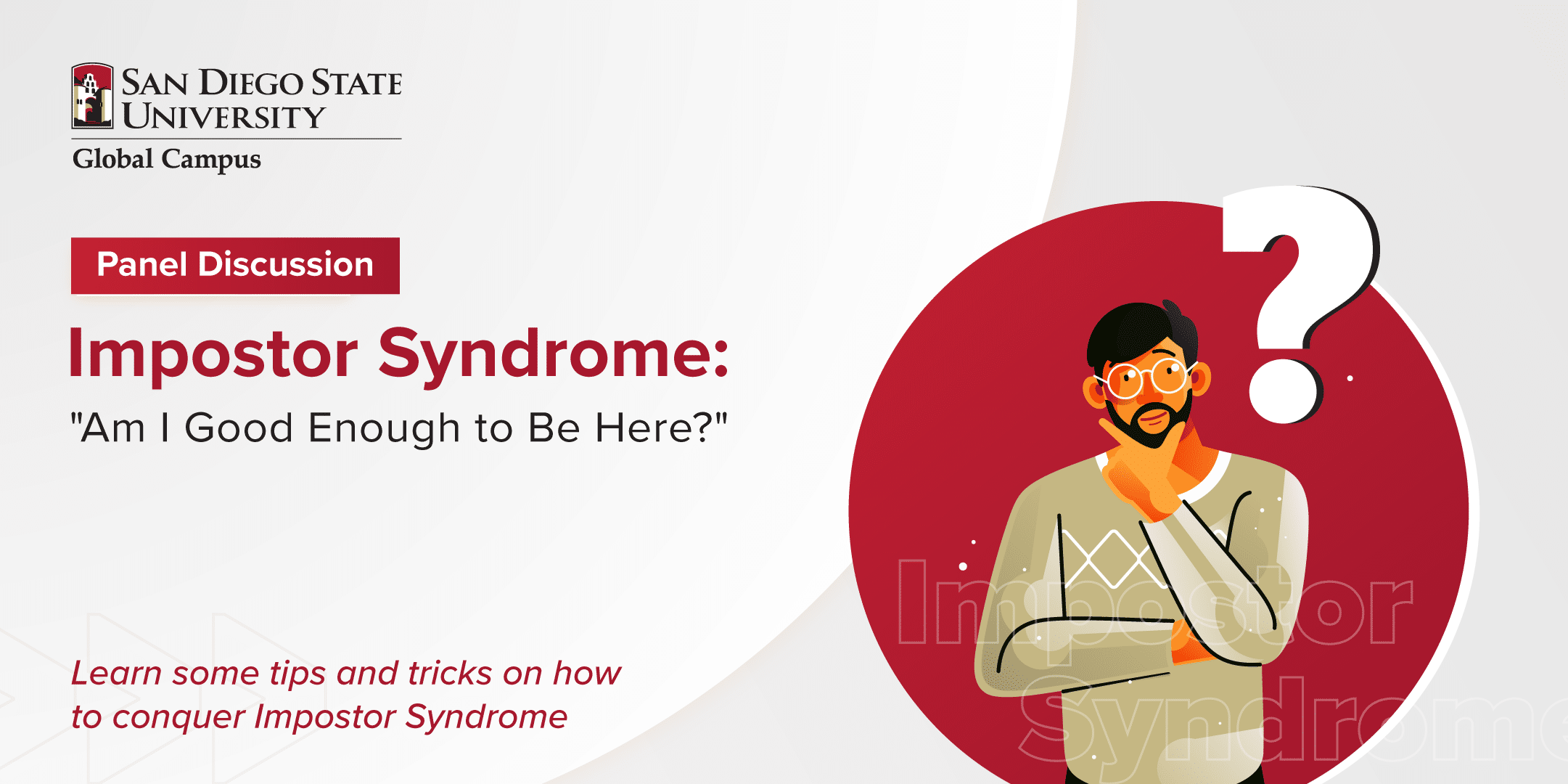May is mental health awareness month, a time to shine a light on mental health issues, raise awareness for those who experience them, and work towards ending the stigma.
According to Mental Health America (MHA), one in five people will experience a mental illness during their lifetime. Additionally, anyone can face challenges throughout their life that can negatively impact their mental health.
While imposter syndrome isn’t officially recognized as a mental health disorder in the Diagnostic and Statistical Manual of Mental Disorders (DSM-5), those who experience it may experience the same feelings of anxiety, depression, and dysfunction as someone struggling with a mental illness, causing burnout, job dissatisfaction, and work-family conflict.
Imposter syndrome is also more common than you think. Research shows that 70% of people will experience imposter syndrome at some point in their lives.

What Is Imposter Syndrome?
Have you ever felt like a fraud? Like you don’t deserve a seat at the table? Like you’re not as competent as others perceive you to be? You may be experiencing imposter syndrome.
Imposter syndrome is the internalized experience of believing that you’ve only succeeded due to luck and not because of your skills and talents. To put it simply, imposter syndrome is an extreme case of self-doubt. Of course, we all experience self-doubt at some point or another, but this specific type of self-doubt is magnified and relentless, no matter how much you achieve or how accomplished you become.
Imposter syndrome was first identified in 1978 by psychologists Pauline Rose Clance and Suzanne Imes as a phenomenon experienced by women. However, it’s since been discovered that both men and women experience these feelings. Imposter syndrome doesn’t discriminate and can affect anyone, regardless of age, gender, race, skill level, or profession.
How Can Imposter Syndrome Present Itself?
Imposter syndrome is complex in that there isn’t one specific way that it plays out. It varies from person to person, but here are a few characteristics to look out for.
- You feel like a fraud.
- You downplay your achievements.
- You dwell on the smallest flaws or mistakes.
- You attribute your success to factors other than your own hard work.
- You fear that you won’t live up to expectations.
- You overachieve.
- You tend to sabotage your own success.
How Do I Overcome Imposter Syndrome?
The first step, as with anything, is acceptance. Recognize imposter feelings when they present themselves, accept them for what they are, and take positive steps to start moving forward. Here are some common techniques that can help.

Talk it out.
The worst thing you can do is face your feelings alone. Instead, talk to a trusted friend, family member, mentor, or mental health professional. Listening to an outsider’s perspective can help you move past these irrational thoughts and provide some validation.
Put pen to paper.
Sometimes, you need to see things in plain sight to believe them. Take a few moments each week to write down your achievements and positive interactions. It can be easy to focus on the negatives when you’re not actively looking at the positives. When you feel yourself starting to travel down a road of self-doubt, go back to your list and remind yourself of all that you’ve accomplished.
Reframe your thoughts.
In the moment, it can be hard to see situations for what they truly are. When you’re experiencing negative thoughts, take a step back and ask yourself: Is what I’m feeling true, or am I setting unrealistic expectations for myself? Would I set that expectation for someone else? Make a conscious effort not to tie your worth to your achievements and give yourself a little more grace.
Let go of comparison.
It’s been said that comparison is the thief of joy, and how true! When comparing yourself to others, you’re always going to find something that triggers feelings of self-doubt—just as someone else may look at you and all of your strengths and start to feel inadequate. It’s important to remember that we all have unique talents and abilities. No one person is better because of it. It’s what makes teams, families, friend groups, and even the world, more well-rounded.
Be present.
During conversations or meetings, it can be easy to overanalyze interactions. When you feel yourself starting to drift into this space of self-doubt and negativity, take the focus off you and start really listening to what the other person is saying. Listen with the intention of understanding and learning, rather than analyzing and comparing.
Don’t fight it.
When you start to feel like an imposter, don’t fight the feeling. Recognize it for what it is and make the conscious choice to keep moving forward regardless. Acknowledging these feelings for what they are and you will have taken the first step towards unpacking the false beliefs holding you back. Keep going—you’ve got this!
Reversing the Cycle
It’s crucial to remember that no one is perfect. No one person knows everything and can be good at every aspect of their profession or life—that doesn’t make them a fraud, it makes them human! If you’ve taken all of these steps and still feel like imposter syndrome is holding you back, it may be time to speak to a mental health professional*. Remember that seeking professional help is an act of self-love, and is a sign of strength, not weakness.

Interested in learning more about imposter syndrome and how to overcome it? Watch our Imposter Syndrome: “Am I Good Enough to Be Here?” Virtual Panel Discussion on-demand.
*If you or someone you know are struggling with mental health, you can contact the Substance Abuse and Mental Health Services Administration (SAMHSA) National Helpline at 1-800-662-4357. The service is confidential, free, and open 24-hours a day, 365 days a year.



